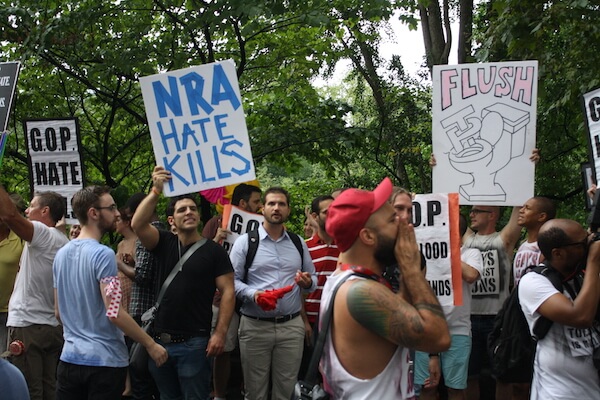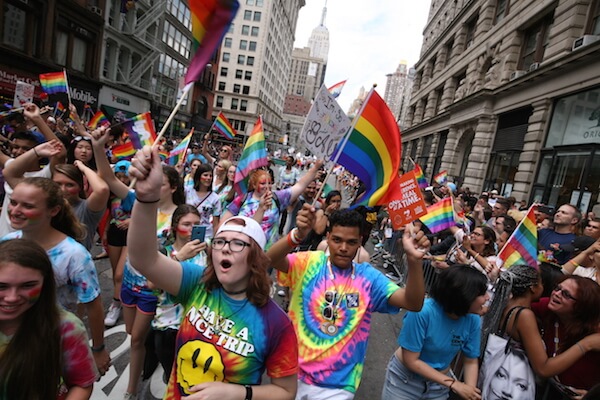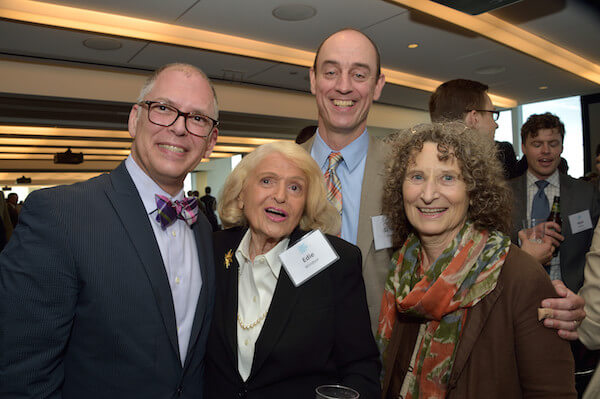Virginia Attorney General Kenneth Cuccinelli, a GOP gubernatorial hopeful. | AGVIRGINIA.TUMBLER.COM
Virginia Attorney General Kenneth Cuccinelli, turned down on April 9 in his request that the US Fourth Circuit Court of Appeals reconsider and overrule a decision by a three-judge appellate panel that last month found Virginia’s sodomy law to be unconstitutional on its face, may yet seek Supreme Court review.
The Republican attorney general, citing the dissent of one member of the appellate panel, had emphasized to the Fourth Circuit that the case involves an adult man who solicited a teenage girl to have oral sex. Virginia should be allowed to prosecute such cases, he argued, a position few would seriously challenge.
The problem with the Virginia statute, however, is that it criminalizes all oral and anal sex, whether or not it involves consenting adults. Its language is similar to the Georgia sodomy law, which was upheld by the US Supreme Court in 1986, but later struck down by that state’s high court.
Ken Cuccinelli, social conservative running for governor, not satisfied to simply amend the statute
Ten years ago, in the Lawrence v. Texas case, the US Supreme Court, declaring that its Georgia ruling 17 years earlier was “wrong” when it was decided, threw out the Texas Homosexual Conduct Law, a statue focused exclusively on same-sex conduct. Justice Anthony M. Kennedy, Jr.’s opinion for the court found the law violated the 14th Amendment’s Due Process Clause.
One would have thought that after Lawrence, all state sodomy laws — whether focused just on gay sex or more broadly on all oral and anal sex — would be considered unconstitutional and no longer enforceable, and that state legislatures would get busy replacing them with laws that only criminalized conduct that was not constitutionally protected, such as the behavior in the current case. But that thought, it turns out, is mistaken. Many legislatures have failed to remove unconstitutional sodomy laws from their statute books, and Virginia has rejected proposals to do so.
State courts in Virginia have taken the position that people can continue to be prosecuted under the Virginia sodomy law, and under a companion law that makes it a crime to solicit somebody to engage in a felony, so long as the conduct being prosecuted does not fall under the purview of the Lawrence ruling.
In 2004, the state prosecuted William MacDonald, then 47, for soliciting oral sex from a 17-year-old girl. MacDonald was found guilty of a felony and sentenced to ten years in prison (with nine years suspended), plus 12 months for the misdemeanor of contributing to the delinquency of a minor. The convicted man argued he could not be prosecuted for soliciting a felony, because the Virginia sodomy law was unconstitutional in Lawrence’s wake. At every level, state courts have since taken the position that because the girl was a minor, the Lawrence precedent is not applicable.
After exhausting his state appeals, MacDonald went to federal court, arguing his conviction violated his federal constitutional rights. US District Judge Gerald Bruce Lee ruled against him, finding that the Virginia courts could not be shown to have been clearly wrong in their construction of the Lawrence decision. But a Fourth Circuit appellate panel, ruling on March 12, disagreed, voting 2-1 to grant MacDonald’s petition and declare his conviction unconstitutional.
Circuit Judge Robert Bruce King, writing for the panel, acknowledged that the Supreme Court had emphasized in its Lawrence ruling that the case did not involve minors, but said that alone did not take account of everything involved in the 2003 decision.
“In Lawrence,” he wrote, “the Supreme Court plainly held that statutes criminalizing private acts of consensual sodomy between adults are inconsistent with the protections of liberty assured by the Due Process Clause of the Fourteenth Amendment.”
On its face, the Virginia statute continues to treat such conduct as criminal.
King pointed out that Lawrence specifically found that the Georgia law it had previously upheld — one that was “materially indistinguishable” from the Virginia law under challenge — was unconstitutional.
“True enough,” he wrote, “the Supreme Court implied in Lawrence that a state could, consistently with the Constitution, criminalize sodomy between an adult and a minor… The Court’s ruminations concerning the circumstances under which a state might permissibly outlaw sodomy, however, no doubt contemplated deliberate action by the people’s representatives, rather than by the judiciary.”
In other words, if Virginia wants to outlaw adults soliciting minors to engage in constitutionally unprotected conduct, it can do so, but it must do so explicitly. In fact, there is a Virginia statute making it a crime for an adult to engage in sex with a person under the age of 15 and another statute criminalizing incestuous sodomy involving both minors and adults, but neither of these laws cover McDonald’s conduct in soliciting oral sex from a 17-year-old.
“The anti-sodomy provision itself, however, which served as the basis for MacDonald’s criminal solicitation conviction, cannot be squared with Lawrence without the sort of judicial intervention that the Supreme Court” has condemned as violating the separation of powers between courts and legislatures, King wrote. The decision on what conduct to prohibit after Lawrence is a legislative decision, the majority concluded, and the court should not presume to know where the legislature would draw its lines.
Circuit Judge Albert Diaz dissented, asserting that the Virginia courts had not clearly violated federal constitutional law. Lower federal courts and state courts, he pointed out, have differing views over Lawrence’s scope. “[T]he matter is not beyond doubt after Lawrence,” he argued, and accordingly the US “district court was bound to give Virginia courts the benefit of that doubt.”
Diaz contended that the US appellate panel majority misconstrued Lawrence as having invalidated the Texas sodomy law on its face, as opposed to only in its application to the gay plaintiff couple who challenged it. Indeed, the Texas Legislature has declined to repeal or amend the statute, and law enforcement authorities there presumably continue to rely on it in prosecuting cases that don’t involve private consensual adult sex. In any event, Diaz argued, it is not “clear that Lawrence facially invalidated all sodomy statutes.”
Diaz also challenged the panel majority’s conclusion that the Virginia law could not be found to prohibit conduct not protected by Lawrence.
“In order for the Virginia anti-sodomy provision to escape facial invalidity, it need not criminalize only conduct that falls outside constitutional protection,” he argued. “Indeed, to suggest that a state must excise the constitutional defects of a statute by legislative revision before enforcing those portions that pass constitutional muster would turn every as-applied ruling into a facial invalidation.”
Now that the Fourth Circuit has rejected Cuccinelli’s petition for reconsideration, his only recourse is to seek Supreme Court review.
It would clearly be a better use of Virginia’s resources for Cuccinelli to focus on getting the state’s sodomy law amended so that it only applies to behavior that is not constitutionally protected. But the attorney general is a social conservative seeking the Republican nomination for governor. He has undoubtedly decided that, in appealing to the core GOP constituency in Virginia, it makes political sense to pose as a defender of public morality battling a federal court decision finding the state’s sodomy law unconstitutional.



































